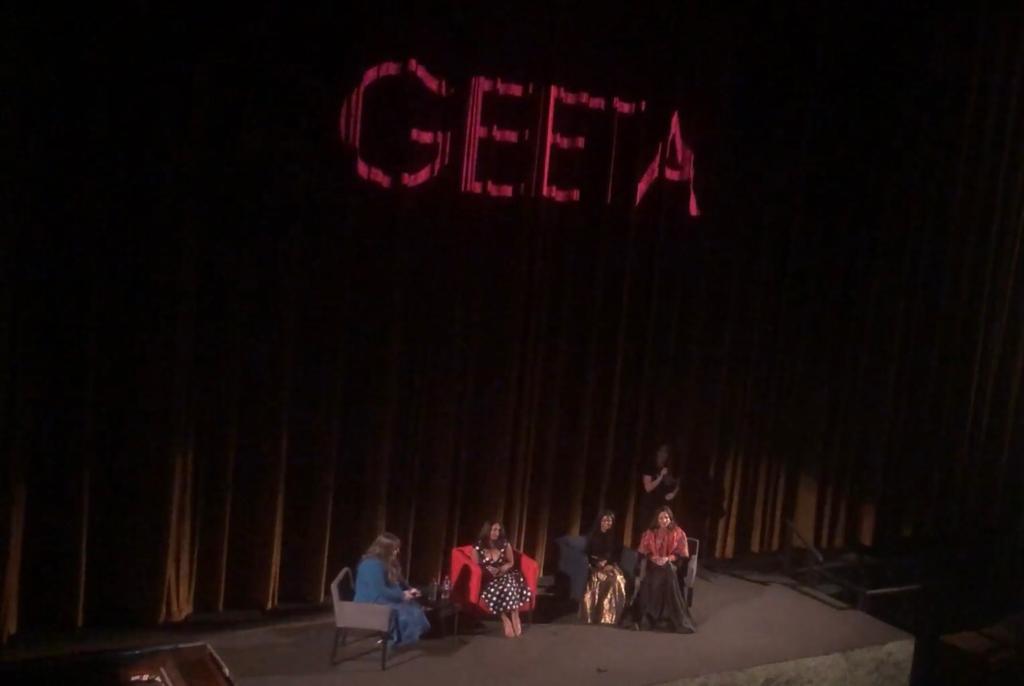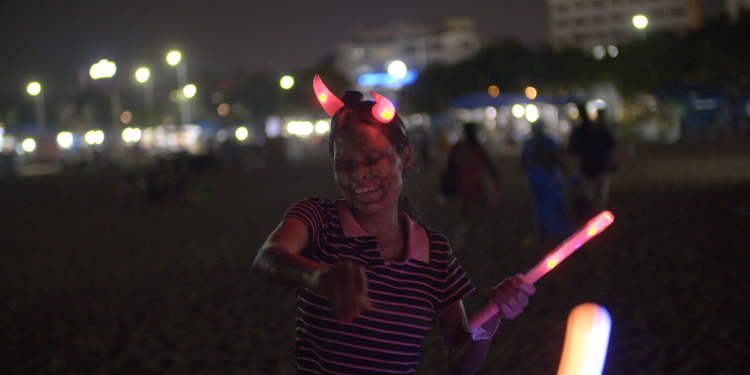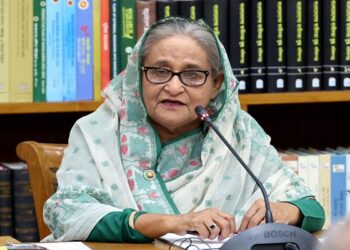“GEETA’ is a vibrant, raw film about a mother’s heartfelt attempt to change her daughter’s destiny after a brutal acid attack.”, by Dr Vikrant Kishore.
The logline of the immensely moving, thought provoking and empowering feature length documentary Geeta captures the essence of the film very effectively. The stark opening scene of the film takes you straight to the point as Geeta narrates the brutal acid attack on her and her three daughters by none other than her husband, father of her daughters, Inderjeet Mahor, that ends up killing their little baby Krishna, leaves three-year old Neetu severely scarred and almost completely blind, and grievously scarring Geeta. One rage filled moment of Inderjeet destroys the family. The reason for this hatred and rage that compelled Inderjeet to take this drastic decision was because Geeta bore him only daughters and was unable to give him a son.
Acid attacks on women is an endemic problem in Asian countries, with more than 1000 women attacked each year, where the attackers are mostly known to these women and are often close family members. Grace Yi in The Yale Global Health Review (2015) reports, “The main reason behind the attacks is inherently gendered: acid attack perpetrators are usually men who feel that they have been scorned by women, often over dowry disputes, rejections of interest or love proposals, anger over divorce, even jealousy over affairs or neglect.”
Shot in the by-lanes of Agra, the fabled city of the world-famous Taj Mahal, the film focuses on the life of Geeta with her daughters Neetu and Poonam twenty-eight years after the horrendous attack. The film captures everyday life of Geeta and her family, and how they navigate the challenges in an easy and calm manner, be it the attempted usurpation of their property by a powerful local businessman, volunteering in the “sheroes” hangout, a café and a community run by survivors of acid attacks, their efforts to get the sale of acid banned and finally, Geeta’s long-lasting dream of restoring Neetu’s eyesight through surgery in one of the top most eye-hospital of India.
Filmmaker Emma Macey-Storch is able to capture each moment in a very sensitive manner, letting Geeta and Neetu share their story in their own way. While Geeta is the protective mother, wanting the best for both her daughters, she is also a fighter standing for her rights, firmly demanding a ban on acid sales in India, and taking her story to the wider community to help other acid-attack survivors, Neetu on the other hand, is the young, vivacious girl ready to experience and explore life, wanting to see the world alive through her eyes. She is unrestrained, expressing her thoughts beautifully, not willing to be bound by the norms of society, but wanting to chart her own path, which she does in a resilient, yet outright manner.
The young girl, despite her circumstances, displays remarkable resilience. The camera is able to beautifully capture the moments where Neetu is in her own bubbly zone, laughing and living the life, showing that her inner child is alive and kicking – sometimes trying the colourful dresses that Atul gets for her, her passion for Bollywood music and singing, or enjoying the local fair on the beaches of Chennai just a day before her surgery.
But just like her mother, Neetu is a fighter too. In one important moment of the film, she declares, both she and her mother are like the warrior queen of Jhansi and are ready to take on anyone who challenges them. In her own inimitable manner Neetu exhibits her fighting spirit and gumption to not only battle her own adversities, but she also wants to be the voice of many others.
What confuses and throws back the audience is seeing Inderjeet back with the family living together as if nothing happened, while though his silence and feeble demeanour portrays his own guilt, and suffering; he questions his own judgement and explicates how the neighbours’ mockery and derision for having only daughters made him hate his wife. He stares at the void in his life, rueing and regretting how his own uncle further prodded him to hurt and kill his family, even providing him with the bottle of acid.
In a poignant moment Neetu, in a tongue-in-cheek manner, questions her father of his actions, but Inderjeet cannot say much but simply moves on to talk about how Neetu and Geeta have done so much for the family, and the pride that brings him. A simple yet evocative and pertinent moment in the film that demonstrates the power and grit of Geeta and Neetu in not only changing their lives (including Inderjeet’s) and making a strong impact in and around their community, helping acid attack and domestic violence victims, but most importantly making Inderjeet see beyond his patriarchal mindset, his rage, his anger, and the harm he caused to his family.
The film traverses through many of the social issues that India faces, through the day-to-day life of Geeta and Neetu, in the form of gendered violence, patriarchal structure of society, class division, caste oppression, and most importantly in the words of the director Emma, the film “Geeta is about overcoming violence, the power of love, building dreams and the everyday heroism that creates grassroots change.”

I would have certainly liked to see and understand more about the “sheroes” hangout, and how it shaped and impacted Geeta and Neetu, the impact this has had on the youngest child Poonam, also, it would have helped to know the perspective of their neighbours, and relatives – whether any concrete social change has actually been achieved and any political actions (beyond monetary assistance) helped their cause.
The best part of this special preview screening in the Astor Theatre of Melbourne was the presence of one of the protagonists of the film – Neetu. In the after-screening Q&A session Neetu thanked the film team for effectively bringing out and sharing their story with the audience across the world. Neetu stressed “this story does not belong to India only, it is a universal story that belongs to every single girl going through gendered violence and oppression, and one needs to strongly raise their voice and fight against this. Neetu further added that she is pained to see that even in a country like Australia one witnesses violence against women on a daily basis, and that laws need to be made more stringent against gendered and family violence.
The Wake-Up Campaign is a new initiative led by Neetu that seeks to mobilise young people to lead change. To support Geeta and her daughter Neetu in their work with acid attack survivors at Sheroes Hangout in India and with young people through www.neetu-campaign.com
- The documentary Geeta has recently won the Social Justice Film award at the renowned 37th Santa Barbara International Film Festival.
- Film: Geeta
- Directed by Emma Macey-Storch,
- Produced by Adam Farrington Williams, Emma Macey-Storch, Nayana Bhandari, Dipanjali Rao and Alexandra Curtis
- Music by Mark D’Angelo
- Cinematography by Rudi Siira
- Edited by Uri Mizrahi
- Production support – Screen Australia, Vic Screen, The Documentary Australia Foundation, The Post lounge, Scout Finance and many philanthropists and donors.
Follow NRI Affairs on Facebook and Twitter for latest updates. Support us on Patreon.











